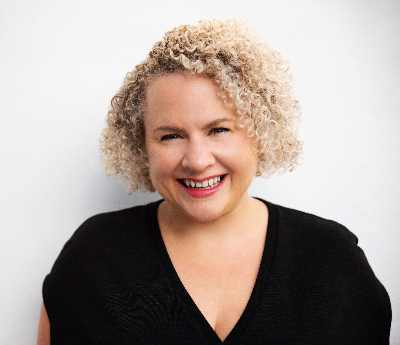At the height of the COVID-19 pandemic during the national lockdowns, many people took the time to pursue their passions and hobbies. Some took the opportunity and turned being furloughed or made redundant into their latest business venture.
The time has come to return to the office and many people aren’t quite ready to let go of their ‘lockdown business’. Some people have made the big decision to leave their full time jobs to pursue this business opportunity. Changing from being an employee to being your own boss can be amazing, but there’s a lot of things people forget to consider before making the leap to freelance or self-employed.
We’ve spoken to some freelance and self-employed experts who’ve made the leap themselves about their top tips. They share the things they wished they’d have known before becoming freelance or self-employed, to make the leap that bit easier for you.
Our Freelance & Self-Employed Experts:
- Lucy Jeffrey, Founder & CEO at Bare Kind.
- Lauren Archer, Brand Marketing & PR Consultant.
- Tom Skinner, Founder & Financial Planning Director of Barnaby Cecil.
- Ebony Douglas, Founder of EbonyHer Marketing Agency.
- Jake Hare, Founder & CEO of Launchpeer.
- Jessica Bruno, Freelance Social Media Marketing Strategist.
- Dannielle Haig, Director at DH Consulting.
- Katie Kershaw, Owner & Director at Kershaw & Company.
- Tarik Khribech, Founder & CEO of AllBetter.
- Jess Salamanca, Founder at Banana Scoops & Moxie Club.
- Laura Rolley, Communications, Content & Events Specialist.
- Elaine Keep, Founder of Your Marketing Managed.
- Jamie Irwin, Director & Founder of Straight Up Search.
- Natalie Richardson, Freelance Digital PR Consultant.
- Sophie Biggerstaff, Founder of BYRCOLLECTIVE.
- Sally Rice, New Business Mentor.
- Ravi Davda, CEO of Rockstar Marketing.
- Sophie Marsden, Founder of LIT Communication.
- Jenny Stallard, Founder of Freelance Feels.
- Anita Fosen, Content Creator & Blogger.
- Holli Cheung, Marketing Communications and PR Professional.
- Zack Neary-Hayes, Freelance SEO Consultant.
- Gabriel Moreno, Franchise Operator Specialist, Investor & Entrepreneur.
- Riannon Palmer, CEO and Founder of Lem-uhn.
- Becca Parker, Founder of To Be Adorned.
For any questions, comments or features, please contact us directly.

Lucy Jeffrey, Founder & CEO at Bare Kind

“You are in control of your own schedule now, so work out the best possible schedule as per your own energy levels. Track your energy levels hour by hour for a week or more, and then plan your days accordingly. For example I work best in the mornings, and am at my lowest energy levels at 3pm so I plan to do jobs that don’t need much brain power or do a quick home workout.”
“If you don’t have a work space you can travel to, try and separate your work space from everything else at home. Your desk is where you work from and everywhere else is for resting, eating, sleeping or working out. Set up your work space properly. A desk chair and standing desk saved me!”
“Give yourself a cut off time. In a ‘normal’ job you may stick strictly to 9-5. If you carry on working with no cut off time, your energy levels and motivation will suffer eventually. If you are an extrovert, find ways to still schedule in some ‘people’ time. I still have a fortnightly call with two ladies I used to work with, and now I have an employee we check in every morning, it helps you not to completely shut yourself into your work. Give yourself time off, you deserve it, and you will burn out if you don’t give your brain a chance to switch off.”
“Record all your finances. I do a daily cash flow and profit & loss so I know exactly what is happening – it allows you to plan ahead, reduce costs and also notice any issues right away.”
“There will be down days, don’t give up. Maybe in 1 or 2 years time you will decide it is no longer working for you, but bad days happen to everyone and they’re not a reason for you to go back to the corporate world!”
Lauren Archer, Brand Marketing & PR Consultant

“Start before you actually quit your job: Bear in mind, of course, that your current contract of employment might stop you from being able to do actually work on a freelance basis, but that doesn’t mean you shouldn’t be putting yourself out there. If you can build up a small, manageable roster of clients where there’s no conflict of interest, DO IT! You’ll build a valuable testbed to help you work out whether the change in pace is your thing before you give up your entire livelihood!”
“Do your sums: Work out your expenditure and how much you need to live off so you can identify how much business you need to bring in to sustain your lifestyle. Sounds obvious, but I’ve heard some horror stories and would never advocate anyone going it alone before understanding the full scope of their financial needs. Start small and factor in that the more you get out there, you should be picking up more clients. I built a cash-flow forecast when I first started and have tracked income ever since, which helps when I’m mulling over luxuries like a new laptop (my MacBook died a sudden death earlier this year!) or whether I have the capacity to take on more work. Another finance-related tip is to get a good accountant!”
“Network: Not optional. Sorry! Whether it’s virtual, through social media and forums/groups, or face-to-face via events, you’ve got to get yourself out there. Scour LinkedIn for groups you can join, engage in the conversation, join sites like MeetUp and keep an eye on Eventbrite for events you can attend. Obviously, COVID has thrown a spanner in the works when it comes to in-person networking, but there are still plenty of high-quality digital events out there right now and there are more in-person things popping up all the time as we adjust back to normal life.”
Tom Skinner, Founder & Financial Planning Director of Barnaby Cecil.

“My advice for any thinking of doing it would be go for it – but you do need to be prepared for long hours, especially initially! Also, calculate the worst financial performance you can imagine and see if you can survive two years on that income. Thankfully, things took off after about six months but were prepared financially and mentally for a tough initial period.
“It’s harder to switch off when you work for yourself and there are always things that need to be done. In fact, I often have to force myself to take holiday days – and although in theory I have as much holiday allowance as I like, I take less than when I was employed! It is important to take time out for you each day too – whether that is exercise or catching up with a friend – it can be very easy to stay glued to your desk!
“It can also be very lonely – especially as many people are still working remotely and for most people moving from an employed role to self employed means leaving an office environment to working solo. It is important to stay connected with people – either through networking, meeting up with friends, or through sporting activities. I go boxing with a friend in the morning. Not only does it keep me fit, it allows me to connect too.
“The positives far outweigh the negatives though – I choose my own hours, I take a day each week to spend with my children and my business is run around my principles.”
Ebony Douglas, Founder of EbonyHer Marketing Agency

“Think about your WHY, this is your driver. There will be times where you feel like giving up or just overwhelmed with the amount there is to learn but remember, even successful businesses/individuals had to start from the beginning.”
“Build a network of really strong contacts who you can build with. Your network is your net worth as they say. Trust is important in business and building a brand isn’t easy but if you have the buy-in of thought leaders and good PR, it will be beneficial for brand growth. Surround yourself with other entrepreneurs by joining Facebook & LinkedIn groups, coffee mornings and business workshops this will enable you to be positive and learn fast how to succeed.”
“Make sure you have sustainable survival fund. In the early stages, your profits many not sustain your lifestyle therefore it’s best to save enough money to live off until the business grows. Get public liability insurance if you’re self-employed. It covers you if you hurt yourself in a place or business or otherwise.”
“Partner with a marketing expert and set aside a decent budget for it. If no one knows your business how will you profit. Many self starters fail to include a substantial budget for marketing efforts and assume they can do it themselves but it’s best to reach out to an agency/consultant for guidance. At the end of the day it’s needed regardless.”
“Take time for yourself and remember who you are. Try not to go into overdrive otherwise you will burnout.”
For any questions, comments or features, please contact us directly.

Jake Hare, Founder & CEO of Launchpeer.

“This should go without saying, but make sure you can actually sell the product or service you’re developing before you quit your day job. You might think you have the greatest idea in the world, and maybe you do, but if you can’t market it effectively enough to make sales, it’s a hobby, not a business. There’s a difference between taking a calculated risk and going all in without a plan, so don’t confuse the two.”
“Along the same lines, don’t sink your company before it’s off the ground by pricing yourself too low. It’s always better to start high and drop the price from there, and much harder to increase the price once you have customers comfortable with your price point.”
“Support is everything when you’re first starting out, so make sure your family is behind you in this new venture and set realistic expectations. The first few months – even years – are going to be tough and you’ll need their encouragement when obstacles arise, so prepare them and make sure they’re with you 100%.”
“No matter what happens, keep perspective. If you fail, the worst case scenario isn’t that bad: you go back to a normal 9-to-5 job and have to go back to the drawing board on your business. That’s nothing in comparison to the reality millions are facing, such as poverty, homelessness or bankruptcy, and reminding yourself that failure is an opportunity to grow will help you push through any challenges you may face.”
Jessica Bruno, Freelance Social Media Marketing Strategist.

“Get comfortable selling on social media (even if you’re friends follow you). If you run a business, you’ve probably googled “How can I promote my services without being ‘salesy’” especially if you’re a new small business owner whose current followers consist of your family, friends and old Tinder dates. I hate it to break it to you, but you can’t not be ‘salesy’ when you sell. You can, however, sell with purpose which has a wonderful way of expelling that cringe feeling.”
“Having a strong social media marketing foundation will fill your ‘higher content purpose’. As woo-woo as this may sound, having clear social media content pillars will act as a higher purpose to you showing up on social media and being able to effectively use it as a sustainable business tool – not a ego booster.”
“Not every single post needs to be promotional, brand awareness content also works as effective lead generation. Not all of your relatable, inspiring and educational content needs a ‘Buy Now’ call to action, instead focus on creating some content that’s core call to action is user engagement.”
“Create a unique and sustainable content schedule (don’t just copy someone else’s). Just because they post every day at 12pm and post Reels, doesn’t mean you should. When creating your content schedule you need to consider a few components: how much capacity do I have to create valuable content? How many posts per week do I have the capacity to schedule/post live? Should I outsource support (if you have the luxury). You’re a business owner first and a content creator second (or maybe third, or fifth!) Your online brand needs to represent the best and more authentic version of you, not the last minute – post on the go – version of you.”
“Creating a consistent schedule looks different for every business owner, but once you find your content flow sweet spot, you will reap the benefits. Remember, you don’t have to post everyday, but you do have to consistently remind people that you are open for business.”
Dannielle Haig, Director at DH Consulting

“If I was to give one piece of advice to those taking the leap, I would say: don’t be shy. I remember building my website and expecting the clients to come pouring in. The reality is that you must be gritty and push yourself out there to get noticed.”
“Don’t be afraid to chase and ask if you can help potential clients, you must hustle basically! Eventually clients will come to you but remember that even the biggest brands in the world must market themselves continuously!”
Katie Kershaw, Owner & Director at Kershaw & Company.

“My top tips for making the move to being self employed is to really think about what it is you want to do and how your offering will differ to current providers. Find your selling point and really own it.”
“Learn how to network and sell your services and if selling isn’t your thing invest some time in getting better at it. Speak to as many former colleagues and connections as you can as whilst what you do might be excellent without selling yourself to secure clients you won’t flourish.”
“Invest in a decent accountant and one who you bond with. If like me you aren’t that way inclined just having someone take care of it takes a huge burden off and means you can spend more time investing in growing your business.”
“Find like-minded business owners, talk about the trials and tribulations. Sometimes being self-employed can be lonely but joining groups of freelancers on various social media platforms and in your local area can really help especially in those early days.”
“My top tip however is to enjoy it and no matter what the day throws at you just take a moment to remember why you started!”
For any questions, comments or features, please contact us directly.

Tarik Khribech, Founder & CEO of AllBetter.

“The pandemic has forced many people to switch from full-time employment to self-employment and freelance work. Many of these people started the switch out of necessity because of scaled-back hours or benefits that weren’t good enough while others made the switch because they wanted more freedom in their everyday lives.”
When making the switch to self-employment or freelance work, you need to find a way to keep everything organised. It isn’t easy figuring out how to brand yourself, market yourself, conduct sales calls, manage customer relationships, get paid all while doing the actual work you’re getting paid to do. Find apps or platforms that can do some of that lifting for you so you can focus on what you do best.”
Jess Salamanca, Founder at Banana Scoops & Moxie Club

“Make a plan. Don’t jump in blind! You need a plan to make your freelance career a success. What services or products will you offer? What’s your niche? Who’s your ideal client? How will they find you? It’s important to have a strategy and the foundations of your business figured out before diving in.”
“Believe in yourself and your business. Every business has its ups and downs and in the hard times, self-belief will keep you going. It will give you a sense of resilience you can’t find anywhere else. I’d recommend keeping a ‘Good News’ folder on your desktop and file in it every bit of positive feedback, milestones and achievements that will help when things get tough.”
“Be patient. You might be tempted to quit your job and go all-in, which can put too much pressure on yourself. Take it easy and try to build sales whilst you still have your 9-5 job. You’re better off building a solid foundation slowly than jumping in, putting too much pressure on yourself and feeling overwhelmed.”
“Keep learning. You’ll need to quickly become an expert at many things – from finance and legal, to marketing and sales, there’s lots you might have not thought about. Try spending a few hours a week learning through online courses, podcasts, YouTube videos or hiring a coach, as you never know when it might come in handy.”
“Set boundaries. Working for yourself can blur the lines between your business and your personal identity, so it’s important to set boundaries to enjoy a better work-life balance and avoid burnout. Some ideas include having a work phone, turning off work notifications outside of work hours and having a dedicated space to work from, avoiding working from bed!”
Laura Rolley, Communications, Content & Events Specialist.

“Give yourself a fresh and realistic list each day, of things that must be completed before logging off. Overwhelming yourself and not being able to get everything done when you are just starting out can be a real confidence killer
When brain block and crisis in confidence hit, which they will, and that is totally normal, have some good motivational speakers/podcasts in your back pocket to give you a reboot and a reminder of why you went into sole trading. I would really recommend Carrie Green of She Means Business and Lean In by Sheryl Sandberg.
“Set yourself up with a dedicated working space which you don’t need to use outside of working hours. Merging your work and homelives in to one physical place can make it hard to differentiate two important life areas which often mean you never switch off from either. If you can, I would recommend using a shared office or co-working space, which has really helped me with motivation, creativity, and work/life balance.”
Elaine Keep, Founder of Your Marketing Managed.

“My top tips to leap in would be to prepare as soon as you can. I worked evenings and weekends for years before I set up on my own, because I loved writing or fiddling around on social media. Even the seemingly tiny jobs I did were making me a viable path to freelance full time, as I created a portfolio on top of my corporate work examples where I wasn’t pigeonholed into one industry or skill set.”
“Start with what you have – but invest when you can. When I started, I had to get by on free trials and used workarounds that usually took twice as much time. (Accounting was all done on Excel for year one which was a nightmare.) As soon as I could, I invested in great basics – the best computer I could afford, time tracking software , subscriptions, support from other freelancers, and better accounting methods. It’s an investment in your success and also a great mood booster.”
“Finally, when you start out, be eager – but not a doormat. Ask – ‘would I let an employee be treated like this?’ If a client is unreasonable, yet paying the lowest possible fee, it may be worth reassessing. Don’t let them eat into your time to give other clients a great service or harm your mental health. You are an asset. If you don’t want to be working past 11pm, eating cereal from a box for lunch consistently, or never taking holidays, you must set the rules and stick to them. Be the boss you always wanted!”
For any questions, comments or features, please contact us directly.

Jamie Irwin, Director & Founder of Straight Up Search.

“Finding your niche is especially important for freelance work. Carefully choose the niche that you specialise in and target your potential audience accordingly. Once you have found something that peaks people’s interests, use images or videos that are relevant to the market you are targeting to show off what you do best.”
“Once someone clicks on one of your ads, make sure they understand all your services by having a ‘services’ section with very detailed descriptions about each service. Also include any additional information not revealed in this section, such as process time or history of projects completed successfully if it applies to the type of business being sold here.”
“Let prospective clients know where they can find other projects similar to yours online – provide links! And don’t forget social media.”
Natalie Richardson, Freelance Digital PR Consultant.

“My main tip before making the leap into self-employment is to network. In the lead up to handing in my notice at my previous employer I proactively introduced myself to various agencies and other businesses which might require digital PR support, so that I already had contacts I could reach out to once I had left my employed role. For this I looked at live job roles (to get an idea for those with an urgent demand) and then reached out directly to hiring managers and team leads, as well as reaching out to people in my existing network.”
“Your network will likely be key in securing initial work – 2.5 years in and most of my work comes from recommendations and referrals from previous colleagues, clients, and acquaintances – so it is vital not to burn any bridges as you complete your notice period with your current employer (especially as people move jobs and may need your services in the future)”.
“Speak to other freelancers in your field to gauge an idea of the work landscape. I reached out to several peers who had gone freelance themselves to discuss the logistics and actuality of doing so, which helped confirm that it would be the right move for me. I am also part of an industry-specific Slack channel (Digital Marketing Union) where like-minded freelancers can discuss work, challenges, successes, etc. – this community also helps with feelings of loneliness and isolation that can sometimes come with becoming self-employed.”
“As well as completing work for your clients, you’re also going to be responsible for lots of other roles (HR, accounts, new business, etc.) so it is worth properly researching what is involved with being self-employed before handing in your notice. As well as securing work, a few things which you’ll need to get set up in the early stages of being self-employed include: registering as a sole trader (or limited company); setting up with HMRC (e.g. unique taxpayer reference); setting up a designated bank account for business use; setting up an accounting software (or process) for invoicing; drafting standard SLA/contract documents; organising relevant insurance; buying necessary equipment (e.g. laptop) and any software you may need access to; and so on”.
Sophie Biggerstaff, Founder of BYRCOLLECTIVE.

“Before you take the leap, outline exactly what it is you are going to do and have a solid plan for what you want to achieve from your business. It’s important to identify exactly what you can offer your clients as knowing your offer will help you communicate what you can do and how you can help much more clearly, which will bring in natural leads, rather than you have to outreach!”
“I would suggest having a financial reserve that will last you at least 6 months (or a part time job) whilst you begin to establish your business and start generating revenue to support your income as it can take a little while to establish. One of the scariest things for me was going from a £60k salary to a £0 and having to figure it out, so do whatever you need to do to put your mind at ease about paying the bills.”
“Set boundaries from day one with yourself and clients you work with. It’s so easy to get into bad habits and routines when you move from a 9-5 to a work whenever you want, but this can be detrimental to your mental health and is a big contributor to overwhelm. Starting a business is already going to be stressful enough so set this up from day one to alleviate some of the pressure.”
Sally Rice, New Business Mentor.

“Delete the word should from your dictionary. I love a bit of social media and I am always open to advice but sometimes the differing opinions can make us feel overwhelmed with all the things we feel like we ‘should’ be doing to set up our business and make it a success. My suggestion: Unsubscribe from anything that doesn’t make you feel positive and motivated (this could be accounts you follow, emails, even people!”
“Outsourcing is your new best friend. I know this can feel uncomfortable in the beginning but investing in someone now to do the £10 tasks in your business leaving you to concentrate on the £1000 tasks will help you to move your business forward and get to your goals faster. For me this was social media graphics – definitely not my forte!”
“Work out what stories you are telling yourself that are holding you back. Although I am a super practical person, I have learnt the hard way just how important mindset is. What are the stories that you are telling yourself about you and your abilities? and what is actually true? For example, for me I was constantly thinking ‘I am not going to be able to make money doing this’. A bit of self reflection goes a long way.”
Ravi Davda, CEO of Rockstar Marketing

“My top tip is to niche down your expertise. It’s very easy to try to be a jack-of-all-trades. When you do this, you won’t appeal to anyone. The easiest way to earn money as a freelancer or being self-employed is to pick a niche you’re interested in and have knowledge of. And then only market to clients in this niche. All of your content should be around how you can help this audience solve the pains they have.”
“For example, if you’re a content writer, the biggest pain a business owner has in terms of writing content is that they don’t have the time to do it. Leverage this.”
For any questions, comments or features, please contact us directly.

Sophie Marsden, Founder of LIT Communication.

“My biggest tip for going freelance is to connect with your network and let them know what services you’re offering. You’ll be surprised how many of your old colleagues, friends and family members will help you spread the word. In fact, that’s exactly how some of my first freelance customers found me.
“Secondly, make sure you’re asking for reviews and building up a solid portfolio of case studies. This will help you attract new customers – especially if you run a service-based business. Your reviews don’t all need to come from freelance customers. You can ask previous managers and colleagues to leave you feedback via LinkedIn, for example.
“I would also say that it’s important to have a routine. When you’re self-employed, your working environment is completely different to being employed, working 9-5 and being based in an office. Little things like making sure you plan your schedule each day and ensuring that your workspace is clear will help massively with productivity.
“Lastly, something very important that most freelancers have to figure out the hard way is to follow your gut instinct. It’s tempting to say yes to each new customer who comes your way in the first few months, and in doing this, it’s easy to end up working with people who showcase all the classic red flags.”
“Some of the main warning signs for me are clients not wanting to sign a simple Statement of Work document, trying to get a discount on your prices or phoning you multiple times a day. Avoid clients like this at all costs. They will only stunt the growth of your self-employed business in the long run and leave you feeling burnt out.”
Jenny Stallard, Founder of Freelance Feels.

“There are plenty of practical ‘ducks’ to get in a row, from financial buffers and work space to joining groups, trademarks and client contracts, as well as time management and networking. Be sure not to forget the emotional and mental health side of things in your planning. Finding a community – or communities – where you can ask advice (I often turn to Freelance Heroes and IPSE) is useful, as well as following like-minded freelancers on social media, including LinkedIn. That platform can often get forgotten but it’s a great source of client leads for me.”
“Make time to ensure your business is working for you – it’s easy to say yes to every offer that comes your way, but having a list of your values and goals to hand (perhaps on the wall by your desk, if you have one), can help. Ask yourself if the client fits with them, and be prepared to push back on rates and deadlines, when it feels necessary. A freelance buddy – a friend in the same boat – can also help for offloading, and of course I recommend a coach!”
Anita Fosen, Content Creator & Blogger.

“Just do it! If you are already debating it, you are probably doing so for a good reason. The timing will never be perfect and it will always require a lot of guts but if you are thinking about it, it’s best to just do it. Once you do, you will probably regret not having done it sooner.”
“Say yes to everything. When starting out, I think you should take on as much work as possible. It will make the first months very busy, but it will also let you familiarise yourself with different clients, demands, niches or similar. From there, you can start to shape what you would like to focus on and not, who you like collaborating with and so on. You can get picky and selective after a while, but in the beginning, just try out and say yes to (right about) everything.”
“Keep a clear overview from the start. Once you start getting clients/orders/projects in, it is really important to keep a clear overview from the very beginning. You might start out with a few quick emails here and there but before you know it, you’ll have a lot of different deadlines, points of contact and contracts to keep track of. Therefore it is really important that you find a way to keep a clear overview of everything. Doing so from the very start means you won’t have to backtrack it.”
Holli Cheung, Marketing Communications and PR Professional.

“My top tips are definitely to network, engage in conversations and to hone in on specific skills and industries!”
“Networking has been important from the get go – I have made direct contact with people via social networking sites, joined community group discussions and events, recommended others and vice versa. You just never know what opportunities can come simply by keeping in touch!”
“Likewise, engaging with contacts whether that is by following/liking posts, commenting or even sending news updates to keep you ‘on the radar’ also helps and it makes you visible to others. People can see how you are contributing and if they like what they see or read, then it can lead to thinking of you when something suitable comes up.”
“It can also be a good support network for you to offer advice to those new to the industry – I’ve seen many groups where individuals sometimes need a bit of clarity and advice and having a supportive network has really benefited. The freelance world isn’t as lonely as some people think – there are now plenty of freelance events/groups where you can be a part of something larger, share ideas/concerns and even seek additional help if your hands are full.”
“The final tip is to hone in on specific skills and industries! Whilst marketing encompasses so much these days, I prefer to concentrate on promoting certain skill sets and working in targeted industries I am passionate about. After all, there is no point being your own boss if you don’t enjoy the area of work or type of work you are doing.”
“By working this way, it has given me a nice mix of brand strategy, campaign planning, PR, and social media marketing across specific industries – so my work keeps me on my toes and reminds me of my passion for work, something which I am very grateful for.”
For any questions, comments or features, please contact us directly.

Zack Neary-Hayes, Freelance SEO Consultant.

“Making the leap to freelancing is a lot like running a startup on a microscale. You will apply yourself to lots of different disciplines, such as sales, bookkeeping, and marketing, on top of whatever your main specialism that you are offering to clients is. In order to stay efficient, it’s important to find which of these cross-skills you are good at, and happy to carry out vs what can be outsourced and delegated.”
“For me, I find accounting tortuous, so that was the first thing I was happy to pay someone else to take care of, which allowed me to spend more time focusing on my strengths within the business.”
“Because the success of a freelance business is tied so closely to an individual and their personal finances, it’s important to be extremely mindful of cashflow and your cash runway, much the same as a startup would be. Freelancing can bring periods of unstable income, so it’s all about working out how to sustainably generate revenue, and in certain scenarios, how long you can survive as a freelance business in the worst case scenario of making little-to-no money.”
“If you’re savvy with money, or have worked within a role that involved you in the financial side of a business, you will already have a lot of skills that will directly translate into running your own freelance venture.”
Gabriel Moreno, Franchise Operator Specialist, Investor & Entrepreneur.

“Anyone embarking on their own journey into self employment may feel nervous, especially about the many unknowns surrounding becoming your own boss. However, setting up your own business can be extremely rewarding and for me, keeping my longer-term goals front of mind was key.”
“I’d encourage anyone thinking of setting up their own business to conduct thorough and extensive research first. Work out where your own strengths lie and understand your weaknesses. For instance, I’m not a creative person and that’s why franchising worked well for me. I was able to take a proven business model and deploy it within my own branch. The creative side was all taken care of for me and I could focus on the key areas where my skills lie, such as operations, processes and the day-to-day management of the business.”
“In the early days, I would count every penny that I had. I wanted to make sure everything I was earning was being deployed correctly to help me reach my end goals. Of course, this led to some difficult decisions but it’s important to keep your end goal in mind. This year, I’m pleased to say my dedication has paid off as I was recently nominated for the Best In Class Multi-Unit Leader award of the bfa HSBC British Franchise Awards 2021.”
“Running your own business can come with its challenges but over time I’ve realised that it’s not about counting the hours you work in a day, instead you need to look at how smart you’re working. And, franchising is a great way to do that. Once you have your head in the right space you’ll achieve your goal regardless, which over the years has taught me to set bigger and better goals.”
Riannon Palmer, CEO and Founder of Lem-uhn.

“Preparation is key: It may be tempting to quit your job straight away if you’re really unhappy and want to be in control of your working and personal life, however planning is key. Be sure to decide a plan of action for the first few weeks, whether that’s approaching potential clients, buying equipment such as a laptop or setting up a new email address.”
“Read up on protocols and rules for running a business and being self-employed as you’ll be the one in charge of this aspect now you’re leaving an employer. One key lesson you should learn should be how to invoice clients as this is important for anyone who is self-employed.”
“The first couple of months can be quiet, and most of your time will be spent securing new business, which means you won’t be earning much straight away. Having some money set aside in savings can take the pressure off you in those first few months.”
“Being self-employed means that you are the one who needs to pay yourself each month. It can be really daunting when you’ve always had the security of an employer to pay your taxes, student loan repayments and organise your pension. I use Mazuma, a digital accountant, who advises me how much tax, pension contributions and student loan amounts I’m due to pay each month. It takes the pressure off and it’s useful to have experts to turn to when I need advice.”
“Taking the leap and quitting a stable job to start a new venture can be daunting. By speaking to others who have made the leap before you can help you to feel reassured and confident to see someone who’s made a success of going out on their own. Before I started Lem-uhn, I spoke to two other women who had founded their own agencies. Especially as a young woman, it can be reassuring to see other successful role models.”
“Growing up and not seeing role models can make it harder to feel confident that you can achieve your ambition. As more diverse individuals take these sometimes scary first steps, it paves the way for more people to do the same in the future.”
Becca Parker, Founder of To Be Adorned.

“Rinse your contacts – one of the best things I did was send a friendly farewell email to friends and colleagues before leaving my workplace, letting them know what I was up to next, what I could help them with, and how they could reach me. I’ve had some great commissions come through off the back of that, even months down the line. I also reached out to one or two dream clients, either pitching specific projects or suggesting how we could work together, being sure to include info on my experience and links to my work.”
“LinkedIn is your friend – before leaving the day job, I made sure to connect with all the folks I had collaborated with. This way, when I updated my employment status on LinkedIn, it was clear that I was open to new opportunities. If you think of it as a portfolio of sorts, sharing links to latest work and projects on there, and tagging in collaborators and clients, is a useful way to remain active and stay connected. You can also set up job alerts for the kind of work you are seeking.”
“Pay it forward – be the kind of freelance buddy you want to have. When you come across great opportunities that could be perfect for your peers, tag and recommend them. One of my most valuable regular freelance gigs came about after I was recommended by a former colleague. I am determined to help that happen for fellow freelancers. After all, they are your colleagues now.”



